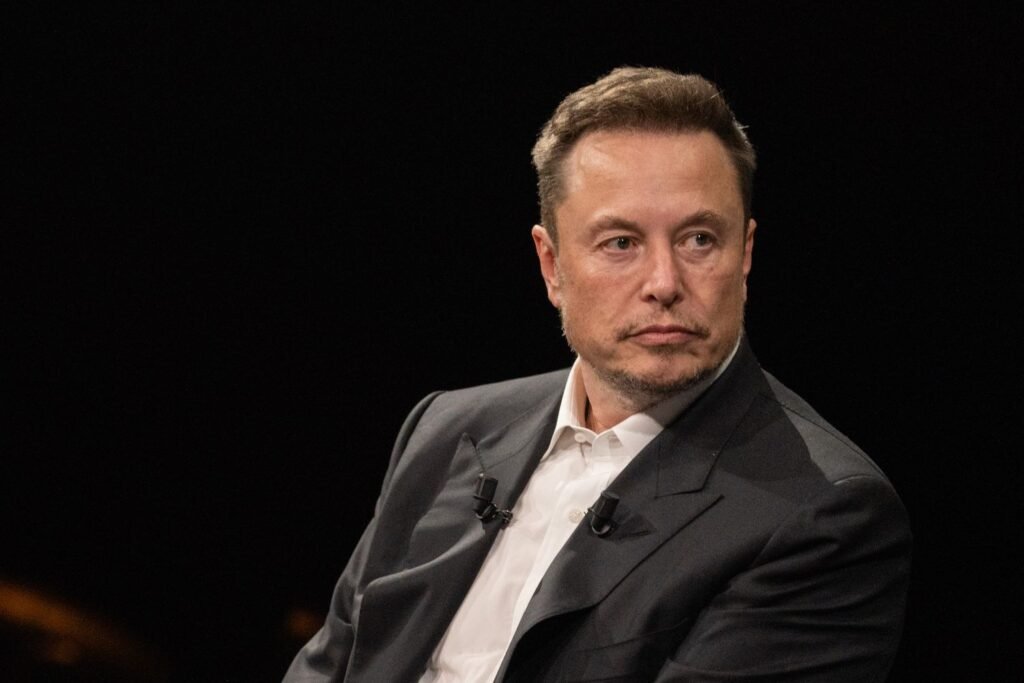Elon Musk, CEO of SpaceX, expressed his frustration with the U.S. government over delays in the Starship project, his ambitious plan to send humans to Mars. In a recent statement, Musk bluntly remarked, “We will never get to Mars” if the bureaucratic hurdles and regulatory red tape continue to slow progress. SpaceX’s Starship, designed to transport humans and cargo to the Moon, Mars, and beyond, has faced multiple delays due to stringent government regulations and approval processes. Musk’s comments highlight his growing impatience with the pace of innovation under current policies, which he believes are hindering humanity’s efforts to become a multi-planetary species.

Elon Musk Warns Regulatory Delays Could Threaten Mars Mission
SpaceX CEO Elon Musk has raised concerns about the future of humanity’s space exploration, particularly when it comes to reaching Mars. He recently expressed frustration over the delays SpaceX has been facing in securing approval for its Starship launches. According to Musk, these setbacks could seriously jeopardize plans to reach the Red Planet.
Ongoing Delays in Starship Test Flights
Musk’s concerns come at a time when SpaceX is still waiting for clearance from the Federal Aviation Administration (FAA) to conduct its next Starship test flight. The hardware for the company’s fifth test flight has been ready since early August, but regulatory approvals are yet to be finalized. The FAA has now pushed the expected approval date for the launch license to late November.
In a recent statement, Musk voiced his frustration over what he referred to as “superfluous regulatory delays” that are holding up the progress of the Starship program. These delays, according to Musk, are making it increasingly difficult for SpaceX to stick to its ambitious timelines for interplanetary travel, especially to Mars.
Regulatory Hurdles and Environmental Concerns
SpaceX argues that the delays are not rooted in genuine safety concerns but are the result of unnecessary regulatory obstacles. The company claims that the licensing process has been “derailed by issues ranging from the frivolous to the patently absurd.”
One example SpaceX points to is the extensive environmental analysis required for the Starship launches. According to SpaceX, these analyses cover aspects such as the impact of sonic booms and the water deluge system used during launches. While environmental considerations are important, SpaceX feels that these particular delays are unwarranted, especially since they don’t address any new safety risks. Instead, the company believes the focus should be on critical safety measures to ensure the success and security of their missions.
Previous Delays and Challenges with the FAA
This isn’t the first time SpaceX has faced such challenges. The FAA has delayed environmental reviews for Starship launches multiple times in the past. The reason often given is that SpaceX had made changes to its application or that further assessments were required. These delays have added significant time to SpaceX’s development schedule, leading to increased tension between the company and the regulatory agency.
Musk’s latest comments highlight this growing tension. By questioning whether humanity will ever reach Mars under the current regulatory framework, Musk is drawing attention to what he sees as a slow and inefficient process that could ultimately undermine the broader goals of space exploration.
Starship’s Importance in Space Exploration
Starship is a key part of SpaceX’s vision for the future of space travel. Designed as a fully reusable spacecraft, Starship is intended to carry humans and cargo to the Moon, Mars, and other distant destinations in space. It’s an essential part of Musk’s long-term goal of making life multi-planetary and ensuring the survival of humanity by establishing a colony on Mars.
However, the ongoing regulatory challenges are casting doubt on how quickly this vision can become a reality. SpaceX has repeatedly emphasized the importance of maintaining a fast-paced development schedule, especially given the complex nature of space travel and the risks involved. Any delays, the company argues, could set back the entire timeline for interplanetary missions.
Musk’s Frustration with the Government
Musk has never been shy about expressing his dissatisfaction with government agencies, and the FAA in particular has often been the target of his criticisms. He has frequently called for regulatory reforms that would streamline the approval process for space missions. In his view, the current system is too slow and bogged down by bureaucracy.

In this case, Musk’s frustrations seem to stem from the fact that SpaceX has done everything it can to prepare for the next Starship launch, but is still being held back by regulatory hurdles. As Musk sees it, this is more than just a setback for SpaceX—it’s a setback for humanity’s entire effort to explore and colonize other planets.
Will We Ever Reach Mars?
Musk’s public statements questioning whether humanity will ever reach Mars under current regulatory conditions have raised eyebrows. It’s rare for him to express such deep doubts about the future of space exploration, as he is typically known for his optimism and vision. However, these comments underline how serious he believes the issue to be.
For Musk, reaching Mars is not just a business goal—it’s a mission to secure the future of humanity. He has often spoken about the risks of remaining a single-planet species, from environmental disasters to existential threats like asteroid impacts. Colonizing Mars, in his view, is a way to ensure that humanity can survive and thrive for generations to come.

The Path Forward
Despite these challenges, it’s unlikely that Musk or SpaceX will give up on their mission to reach Mars. However, the delays do highlight the difficulties of balancing innovation with regulation. On the one hand, government agencies like the FAA are responsible for ensuring that space missions are safe and do not cause undue harm to the environment. On the other hand, companies like SpaceX argue that these agencies need to adapt to the fast pace of technological development and not hold back progress unnecessarily.
As the regulatory process continues, it will be important for both SpaceX and government agencies to find a way to work together more effectively. The future of space exploration depends on it. Without timely approvals and a clear regulatory framework, humanity’s dream of reaching Mars could be delayed far longer than anyone anticipated.
In the meantime, all eyes will be on SpaceX and its next Starship test flight, as it represents a critical step forward in the journey to the Red Planet.
Stay tuned to Club4Celebs for more updates.


